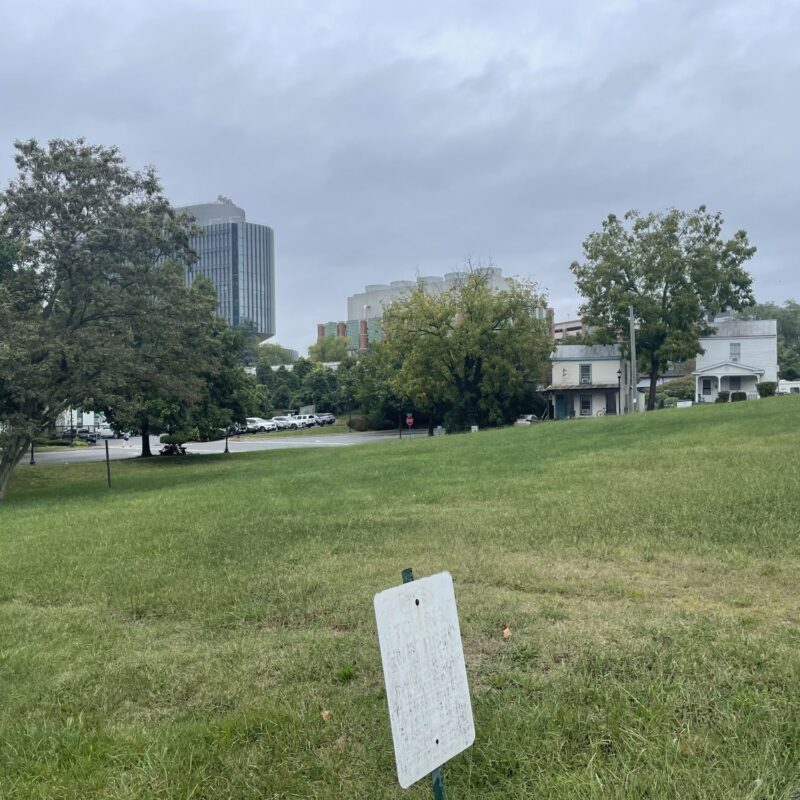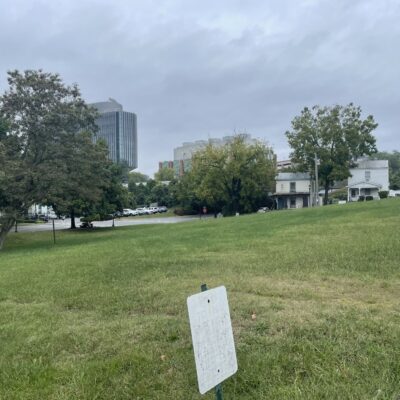If local land were local wine, then Vineyard Estates—a luxury real estate development envisioned by Patricia Kluge and Bill Moses—might be corked. Months after the Virginia winery owners bought back one foreclosed lot for a price of $3.67 million, five more lots in the project’s Meadows Estates subdivision on Blenheim Road in Albemarle County are scheduled for a January 11 auction.
|
Patricia Kluge |
Every vintage has a history: In July 2002, the UVA Foundation sold the 123-acre Maxwell Farm—a piece of John Kluge’s 7,379-acre gift to the university—to a private partnership called House and Garden Company LLC. That partnership later became Kluge Estate Winery & Vineyard, which transferred the property to Patricia Kluge herself before the land reached its current owner, Vineyard Estates LLC. The acreage was subdivided into a handful of lots that Vineyard Estates LLC (Kluge and her husband Moses) planned to dot with million-dollar mansions.
Almost eight years later, the proverbial sparkling white bubbles seem ready to burst. In April, Vineyard Estates LLC settled out of court a $1.9 million breach-of-contract lawsuit brought by Frank Hardy, Inc. In December, locally based Farm Credit of the Virginias purchased the Kluge Estate Winery & Vineyard with a single bid of $19 million at another foreclosure auction; the bank holds a lien on the property to the tune of $34.8 million. Farm Credit also holds a secondary lien on Albemarle House, the former home of Kluge and Moses. Albemarle House is currently listed at $24 million, down from a hefty $100 million initial asking price.
Now, prompted by Vineyard Estates’ default on an $8.2 million loan from locally based lienholder Sonabank, five more Meadows Estates lots will be auctioned on the Albemarle County Circuit Court steps. The lots total more than 120 acres and are assessed at roughly $7 million.
In a prepared statement, Bill Moses said last week that Vineyard Estates “has suffered from a lack of sales as have many other real estate projects during the recent economic downturn,” and mentioned the 2009 bankruptcy of development partner First Colony Resorts.
“With the combination of these events, the financing bank for the project has found itself under severe pressure to take action,” said Moses. “We remain hopeful that given various on-going negotiations, the vision we have had for helping this project benefit the county as well as the Virginia wine industry may still be able to be realized.” Moses did not respond to requests for additional comment.
There is also another plot of land that Farm Credit is eager to get its hands on. In a civil suit filed in Albemarle County Circuit Court, Farm Credit alleges that Kluge and Moses fraudulently transferred a seven-acre parcel into a trust for Kluge’s son—a charge that Kluge and Moses’ attorney, Edward B. MacMahon, Jr. called “ridiculous.” In the suit, Farm Credit asks that the transfer be voided and the land sold at auction.
MacMahon responded on his clients’ behalf, and denied that the property transfer was meant to conceal the land from Farm Credit. The response also says Farm Credit’s suit fails to make an adequate claim for the property, and states that the plaintiff has “unclean hands”—a statement on which neither MacMahon nor Moses would elaborate.
/P_Kluge_HUNT.jpg)





